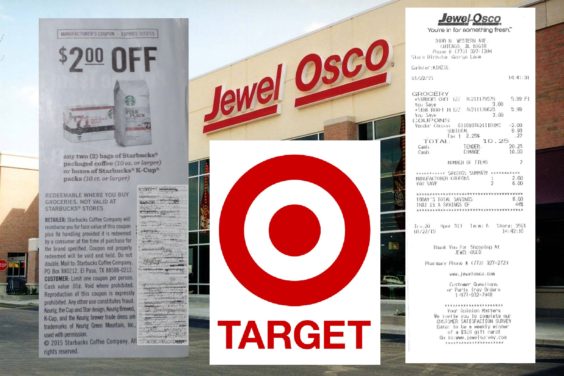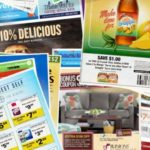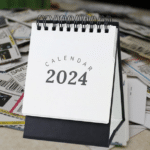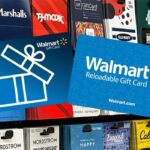An Illinois couponer really doesn’t like to pay extra sales tax he says he doesn’t owe. First, he sued Whole Foods for overcharging him by $1.39. Now he’s suing Jewel-Osco for overcharging him by a nickel, and Target for overcharging him by a whopping two cents.
In two new lawsuits filed in an Illinois federal court, Chang Wong alleges that Target and Jewel-Osco are incorrectly assessing sales tax when coupons are used.
It’s hardly the first time that retailers have been sued over sales tax and coupons. But if you think you’ve heard it all before, you probably haven’t heard an argument quite like Wong’s.
On January 22, Wong visited a Chicago Target store and bought a package of Starbucks Via instant coffee for $9.95. He used a $1 manufacturer’s coupon to reduce his total to $8.95.
A few hours later, he stopped by a Jewel-Osco grocery store and bought two bags of Starbucks coffee for $5.99 each. There, he used a manufacturer’s coupon for $2 off two bags, which brought his total down to $9.98.
But in both stores, he was charged tax on his pre-coupon total: 22 cents instead of 20 cents at Target, and 27 cents instead of 22 cents at Jewel-Osco.
So he sued Jewel-Osco last week, and filed a separate lawsuit against Target yesterday.
But wait, coupon and tax law experts among you might be asking, what’s the problem with charging tax before manufacturer’s coupons are applied? In most states, that’s exactly how it’s supposed to work.
Store coupons typically reduce the amount of sales tax owed. And that’s the basis of Wong’s lawsuit against Whole Foods, which he says taxed him on the total sale price of his groceries even after he used a store coupon. But most states treat manufacturer’s coupons differently. They do not reduce the amount of sales tax owed, so tax is based on your pre-coupon total.
And Illinois is one of those states.
So why does Wong think he has a case? It has to do with the fine print on the Starbucks coupons themselves.
Wong claims Starbucks actually owes the state those extra few cents in sales tax, not him. So he says Target and Jewel-Osco were wrong to collect the money from him. His lawsuits cite Illinois state law, which reads:
“Technically, the coupon issuer (the manufacturer in this example) owes the corresponding Use Tax on the value of the coupon. However, in many cases, the coupon issuer incorporates language into the coupon that requires the bearer (the purchaser in this example) to assume this Use Tax liability.”
Have you ever seen wording on coupons saying that the “consumer is responsible for any sales tax”? The Starbucks coupons that Wong used did not contain that wording. Therefore, his lawsuits claim, Starbucks never formally shifted the tax burden to the coupon bearer, so Target and Jewel-Osco should be seeking that money from Starbucks and not him.
So Wong may in fact have a legitimate legal argument. But that doesn’t mean he has a slam dunk case, as others who have filed similar lawsuits have found. Most state tax laws don’t actually forbid retailers from overcollecting sales tax. And many courts have found that consumers who complain about being overtaxed, must dispute that with the state that ended up with their money, not with the retailer that collected it on the state’s behalf.
Besides, some argue that cashiers can’t possibly be expected to memorize every single coupon-and-sales tax scenario, so it’s easier to just program the registers to charge the full amount of sales tax, and let the consumer dispute it with the state if they choose.
Writing in the National Law Review, contributor Catherine A. Battin argues that “store clerks would be expected to carefully read the fine print of each and every coupon that customers present. Surely, the Department of Revenue could not have intended such a result.”
It will be up to an Illinois judge to decide.
Wong is seeking class action status for his two new lawsuits, just as he is in his suit against Whole Foods. If he loses any or all of the cases, he’ll be out a whole lot more money than the combined $1.46 he says the three retailers overcharged him. But if he wins – well, you can bet Starbucks will be taking a hard look at the fine print on its coupons, before Wong goes on any more coffee runs.
Background image source: Jewel-Osco












LMAO, good luck guy. Your just an a***ole looking for a quick buck. As some one who works with one of the companies listed above as has been a cashier for many years I can tell you that that is how it works. Fine print my ass. You went to two different stores that day knowing what was on that coupon and did it on purpose hoping that one of them wouldn’t do the taxes right. YOU SIR ARE A COMPLETE F***ING D***.
He’s actually doing the consumers a favor, especially someone like you who could really need the money working as a cashier for one of the above!!!
Like the court system isn’t backed up enough. This guy’s an idiot.
This is America. It’s the principle! You let the courts worried about the case loads. That’s why we pay taxes to support the legal court system in this country. Glad to educate the masses.